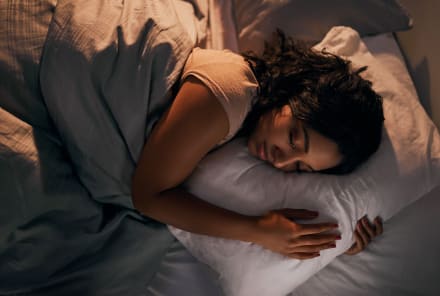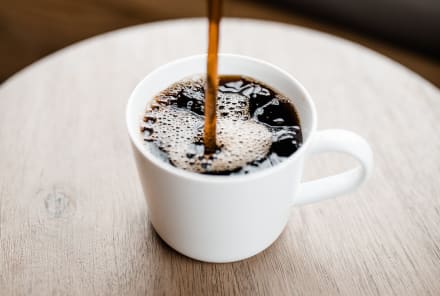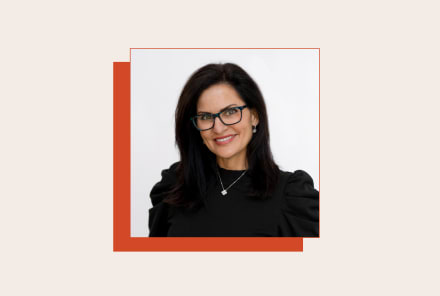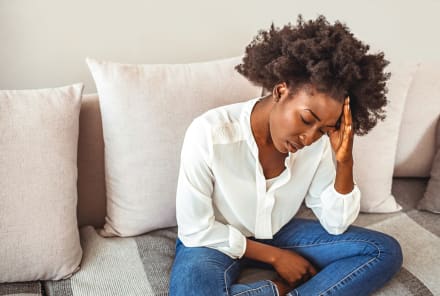Advertisement
In Defense of Napping: The Restorative Benefits Of A Short Snooze

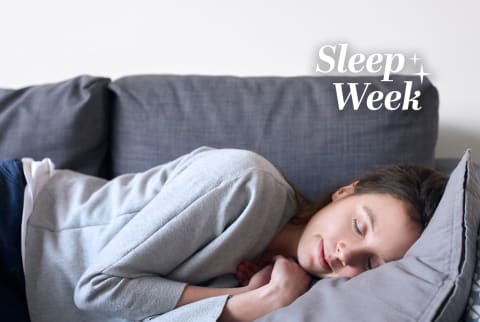
Anyone who's ever felt an afternoon slump—a wave of fatigue, maybe after lunch, that leaves you wondering when it's time for bed—has craved a quick cat nap. The last time you felt tempted to take a midday snooze, did you do it? Or did you convince yourself that staying awake would be the more productive way to spend your time?
Well, we've got some news about naps: Sleep experts say that they can come with many benefits, like boosting brain power and increasing energy. Here's what to know about why napping can be so restorative and how to maximize your naptime.
Why nap?
Naps can be rejuvenating, especially when you're experiencing an afternoon slump, according to Wendy Troxel, Ph.D., psychologist and sleep specialist.
There's a reason for that slump. According to Troxel, our natural circadian rhythms, which control when we feel most awake, experience a dip around 2 to 4 p.m. "It's the time when most people start to feel sleepy," she says.
Taking a short nap around then can boost cognitive function1 and help you feel more energized throughout the rest of the day. Naps can also restore alertness and help you weather feelings of tiredness as the day goes on, according to Janet Kennedy, Ph.D., clinical psychologist and founder of NYC Sleep Doctor.
Studies of the effects of napping on athletes have shown that naps improved their physical performances, reaction times, attention, and short-term memory2. Longer naps of around 90 minutes were found to be especially helpful to some athletes3. (However, sleep researchers warn that long naps can have some potential negative effects on your overall sleep health.)
"A short nap can really do a lot for a person's attention, focus, alertness, and even learning and memory," Kennedy says.
Hence why Ellen Vora, M.D., holistic psychiatrist, said in an Instagram video recently that she believes naps should be destigmatized.
"Culturally, we're due for a destigmatizing process around napping, in terms of thinking about it as lazy," Vora said. "We used to think, 'Ah, I'll sleep when I'm dead. Sleep is for the weak. It's for the lazy." But in the U.S., she continued, we're starting to accept that sleep can be a "secret weapon" instead of a waste of time.
Can't nap? That's OK, too.
Benefits aside, naps aren't for everyone. People who suffer from chronic insomnia or other sleep disorders probably shouldn't nap, according to Troxel.
That's because people who have difficulty falling asleep and experiencing quality sleep need to maximize their "sleep drive," which is sort of like a hunger drive, that tells us when it's time to sleep.
Some people also might find napping less helpful than others. Troxel has found that napping isn't always the best strategy for some people to get a midday boost.
If you're not a napper, Troxel suggests using other strategies such as exercising, exposing yourself to natural light, engaging in social interactions, or getting a treat, such as a decaf coffee (emphasis on decaf) to increase your energy during an afternoon slump.
How to take the ultimate nap.
There's no one-size-fits-all way to nap, but there are some things to keep in mind that may make your naps more effective:
- Keep it short and sweet: Kennedy recommends taking brief "power naps" of around 45 minutes or less. In shorter naps, you'll enter stage one or two of sleep, but longer naps can cause you to slip into a deeper sleep, making it more difficult to wake up, and potentially impact your sleep at night. "The body asleep, particularly in deep sleep, wants to stay asleep," Troxel says. "The way to combat that is to keep the naps shorter and sometimes that takes some kind of trial and error and experimenting." If you're always tempted to nap for longer, it could be a sign that your overall sleep quality could use some work. Establishing a steady bedtime and wake-up time, avoiding electronics before bed, and taking a sleep supplement can help improve your nightly zzz's.
- Set an alarm: The easiest way to prevent yourself from accidentally oversleeping is by setting an alarm. Make sure your alarm leaves time for both the nap itself and the time it takes you to fall asleep.
- Don't ruin your sleep appetite: Napping too late in the day can compromise your sleep at night, Troxel says, by making you less tired later and throwing off your circadian rhythm. "It's sort of like having a snack before dinnertime," and ruining your appetite, Troxel says. "Similarly, if you take a nap late in the day, that can sap some of that drive for sleep, which you want at a maximal level at bedtime so that you're able to fall asleep deeply and quickly."
- Let some light in: Napping in darkness can "trick" your body into falling into a deeper sleep, Kennedy says. To avoid that, nap in a room with natural light, or switch a light on.
- Keep a routine: Your body likes routine. Vora suggests that there are two good ways to approach napping. One of them is the "occasional one-off nap," which may be needed after a bad night of sleep or when you're feeling ill. The other is a "regularly scheduled siesta" that your body gets used to over time.
- Track your sleep in a diary: Keeping track of your sleep can make you aware of the impacts napping has on your overall sleep health. "So that you're not, then suddenly, two months later, into a napping habit realizing that your nighttime sleep is kind of shot," Kennedy says.
The takeaway.
While napping isn't for everyone, it may be time to change your tune on midday snoozes. When done strategically—during a relatively short amount of time earlier in the day—naps can boost your energy and cognitive ability, helping you power through the afternoon feeling alert and energized.
Watch Next
Enjoy some of our favorite clips from classes
Enjoy some of our favorite clips from classes
What Is Meditation?
Mindfulness/Spirituality | Light Watkins
Box Breathing
Mindfulness/Spirituality | Gwen Dittmar
What Breathwork Can Address
Mindfulness/Spirituality | Gwen Dittmar
The 8 Limbs of Yoga - What is Asana?
Yoga | Caley Alyssa
Two Standing Postures to Open Up Tight Hips
Yoga | Caley Alyssa
How Plants Can Optimize Athletic Performance
Nutrition | Rich Roll
What to Eat Before a Workout
Nutrition | Rich Roll
How Ayurveda Helps Us Navigate Modern Life
Nutrition | Sahara Rose
Messages About Love & Relationships
Love & Relationships | Esther Perel
Love Languages
Love & Relationships | Esther Perel





